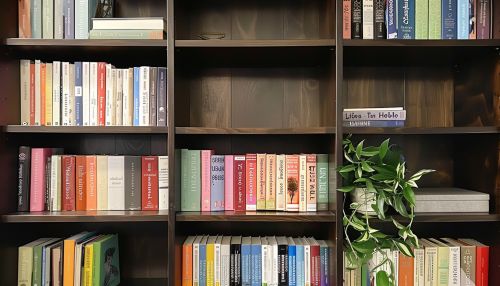Self-help
Introduction
Self-help, also known as self-improvement, is a self-guided improvement process—economically, intellectually, or emotionally—often with a substantial psychological basis. The concept of self-help has been linked to the ideals of personal responsibility and self-reliance, promoting the idea that individuals can make significant changes in their lives on their own.
History
The origins of self-help can be traced back to ancient civilizations, where philosophical teachings focused on the pursuit of self-knowledge. The ancient Greeks, for example, emphasized the concept of "Know Thyself" as a cornerstone of personal wisdom. The teachings of philosophers like Socrates, Plato, and Aristotle often centered around self-examination and the pursuit of virtue.
The modern self-help movement began in the 19th century, with the publication of books such as "Self-Help" by Samuel Smiles and "As a Man Thinketh" by James Allen. These works introduced the idea that the mind has the power to overcome personal difficulties and shape one's destiny.


Psychological Basis
The psychological basis of self-help lies in several theories and practices in psychology. Cognitive-behavioral therapy (CBT), for example, is a common method used in self-help, as it teaches individuals to identify and change destructive thought patterns that have a negative influence on behavior and emotions.
Another psychological theory that forms the basis of self-help is Maslow's hierarchy of needs, which suggests that individuals have a set of needs that must be met for them to achieve self-actualization. This theory has been widely used in self-help literature to explain and guide personal development.
Methods and Techniques
There are various methods and techniques used in self-help, ranging from books and seminars to personal coaching and online courses. These tools aim to provide individuals with the knowledge and skills needed to achieve their personal goals.
One common method is bibliotherapy, the use of books as therapy. Self-help books provide readers with insights and strategies to tackle their problems and improve their lives. These books often include exercises and worksheets to help readers apply what they've learned to their own situations.
Another technique is mindfulness, a practice derived from Buddhist meditation. Mindfulness involves focusing one's attention on the present moment and accepting it without judgment. This practice has been shown to reduce stress and improve mental well-being, making it a popular tool in self-help.
Criticism and Controversy
Despite its popularity, the self-help industry has been subject to criticism. Some critics argue that self-help often oversimplifies complex psychological issues and promotes quick-fix solutions that may not be effective in the long term. Others express concern that self-help may discourage individuals from seeking professional help when needed.
Additionally, some self-help materials have been criticized for promoting narcissism and self-centeredness, rather than fostering genuine self-improvement. Critics argue that this focus on the self can lead to a lack of empathy and understanding of others.
Conclusion
In conclusion, self-help is a broad field that encompasses a variety of methods and techniques aimed at personal improvement. While it has been subject to criticism, many individuals have found value in self-help resources and have used them to make positive changes in their lives.
